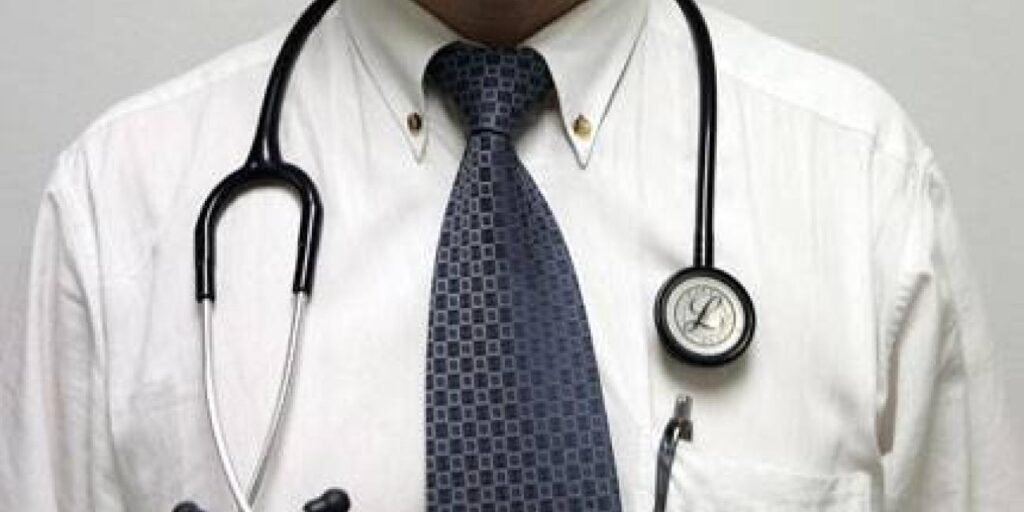
In a concerning revelation, the Association of Resident Doctors (ARD) based at the Enugu State University Teaching Hospital (ESUTH-Parklane) has reported a distressing trend – an average of four doctors depart the hospital for opportunities abroad every month.
Dr. Chukwunonso Ofonere, President of the ARD ESUTH-Parklane chapter, brought this disconcerting matter to light during a press conference held on Thursday. He emphasized that the urgent need to replenish the doctor workforce on a one-to-one basis has been a key factor driving their ongoing nationwide strike, which has now reached its ninth day.
A recent development highlighted that the Nigerian Association of Resident Doctors decided to suspend their planned nationwide protest after a confidential meeting with prominent Senate officials. In response, the government implored the striking resident doctors to reconsider their planned protest and halt the ongoing strike, considering the plight of patients across the nation’s hospitals.
NARD’s President, Emeka Orji, announced the suspension of the nationwide protest while confirming that the association would reassess the situation within the next 72 hours.
However, speaking to journalists in Enugu, Dr. Ofonere provided further insights into the dire situation at ESUT-Parklane. He underscored how the consistent exodus of doctors has caused a significant “personnel crisis” within the hospital.
“At least four of our colleagues leave every month, and we are insisting on a proportional replacement for the numerous doctors who have departed over the years,” Dr. Ofonere articulated.
He revealed that the association has been persistently engaging with the state government for over half a decade, advocating for the crucial one-to-one doctor replacement, to no avail.
“The core motivation behind our demand is to enhance healthcare delivery for the betterment of the public. This shortage has resulted in our doctors at ESUTH being overburdened on a daily basis. Some doctors find themselves working for nearly 12 hours at a stretch, particularly during weekends.”
Dr. Ofonere lamented that doctors often start their shifts early in the morning and remain at the hospital well into the evening. Irregular schedules and understaffing have led to instances where some doctors are forced to cover two shifts due to the lack of adequate replacements.
The president of ARD ESUTH-Parklane chapter deplored the adverse impact this predicament has inflicted on the overall quality of healthcare. With fewer doctors to cater to a growing number of patients, the system is under strain.
Of great concern is the escalating aggression directed at doctors by irate relatives of patients. Dr. Ofonere disclosed, “Our colleagues frequently face verbal abuse, harassment, intimidation, and even physical assaults from patient relatives who perceive inadequate personal attention, especially in critical cases.”
“Regrettably, we have documented instances where colleagues were attacked with sharp objects, and others faced threats involving dangerous weapons. A hospital should never resemble a battlefield or harbor violence, given its sensitive environment and the vulnerable patients within,” Dr. Ofonere emphasized.
While addressing these challenges, the ARD President underscored the importance of swift doctor replacements. This approach would not only ensure adequate manpower to deliver quality care to patients but also protect medical professionals from public resentment.
Considering the ongoing hyperinflation within the nation, Dr. Ofonere underscored the doctors’ justified demand for a 200 percent salary increase to align with the 2014 Consolidated Medical Salary Structure enjoyed by their counterparts in federal health institutions.
“This equitable raise would also act as a deterrent against the persistent brain drain among doctors,” Dr. Ofonere added.
In the context of remuneration, he critiqued the current monthly hazard allowance of N5,000 for doctors at the hospital as an insult, comparing it unfavorably to the N35,000 minimum allowance provided to doctors in federal health institutions.
“Upon careful consideration, it becomes apparent that this sum is far from sufficient to cover the hazards that doctors encounter in clinical and pathological settings during their daily duties,” Dr. Ofonere stated.
He expressed his regret that the state government has yet to fulfill its commitment to the Medical Resident Training Fund, which was established to support doctors in furthering their education and professional growth.
“Our counterparts in federal health institutions have been benefiting from this fund, while we continue to lag behind,” Dr. Ofonere concluded, emphasizing the pressing need for comprehensive reform to address these multifaceted challenges faced by the healthcare system.